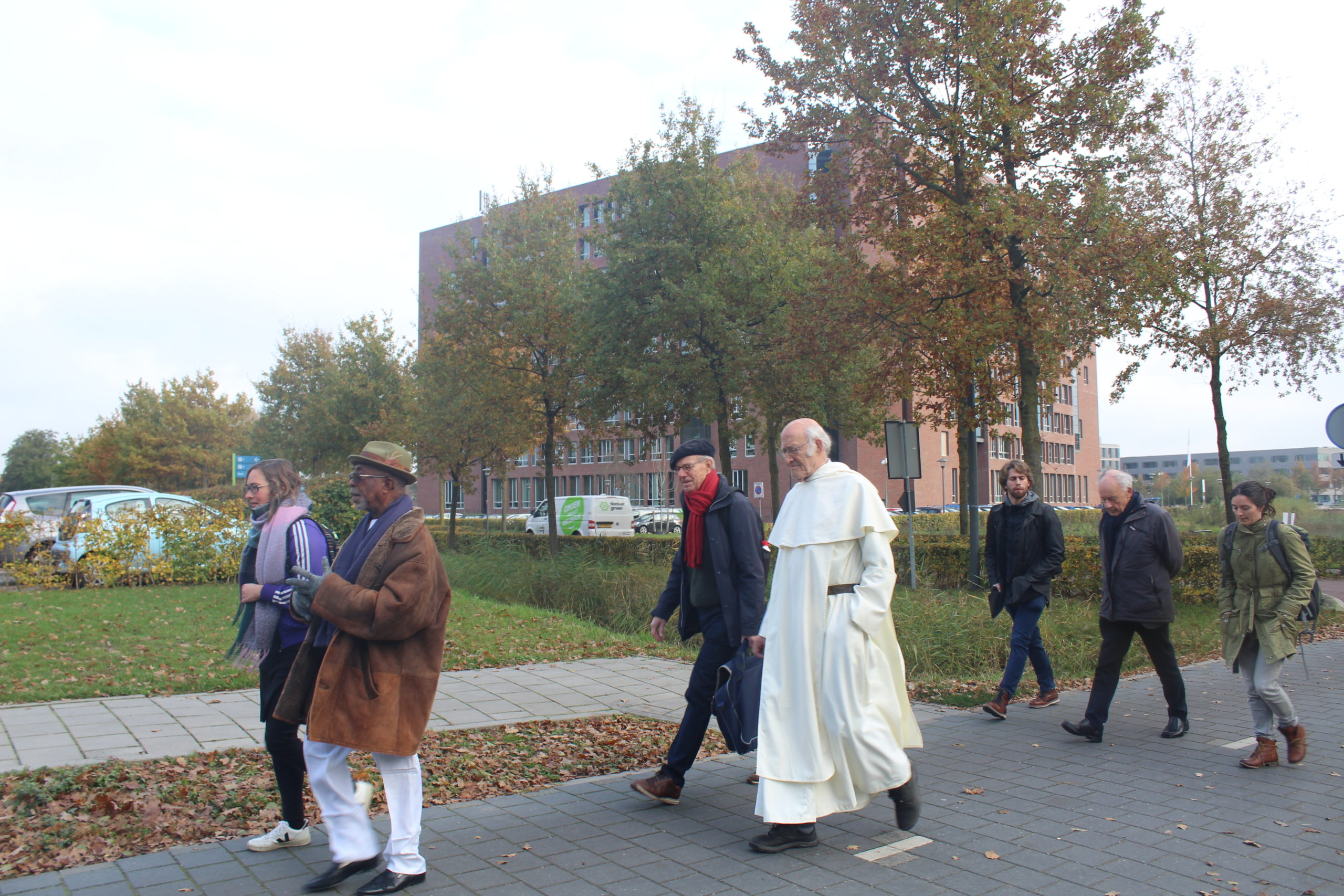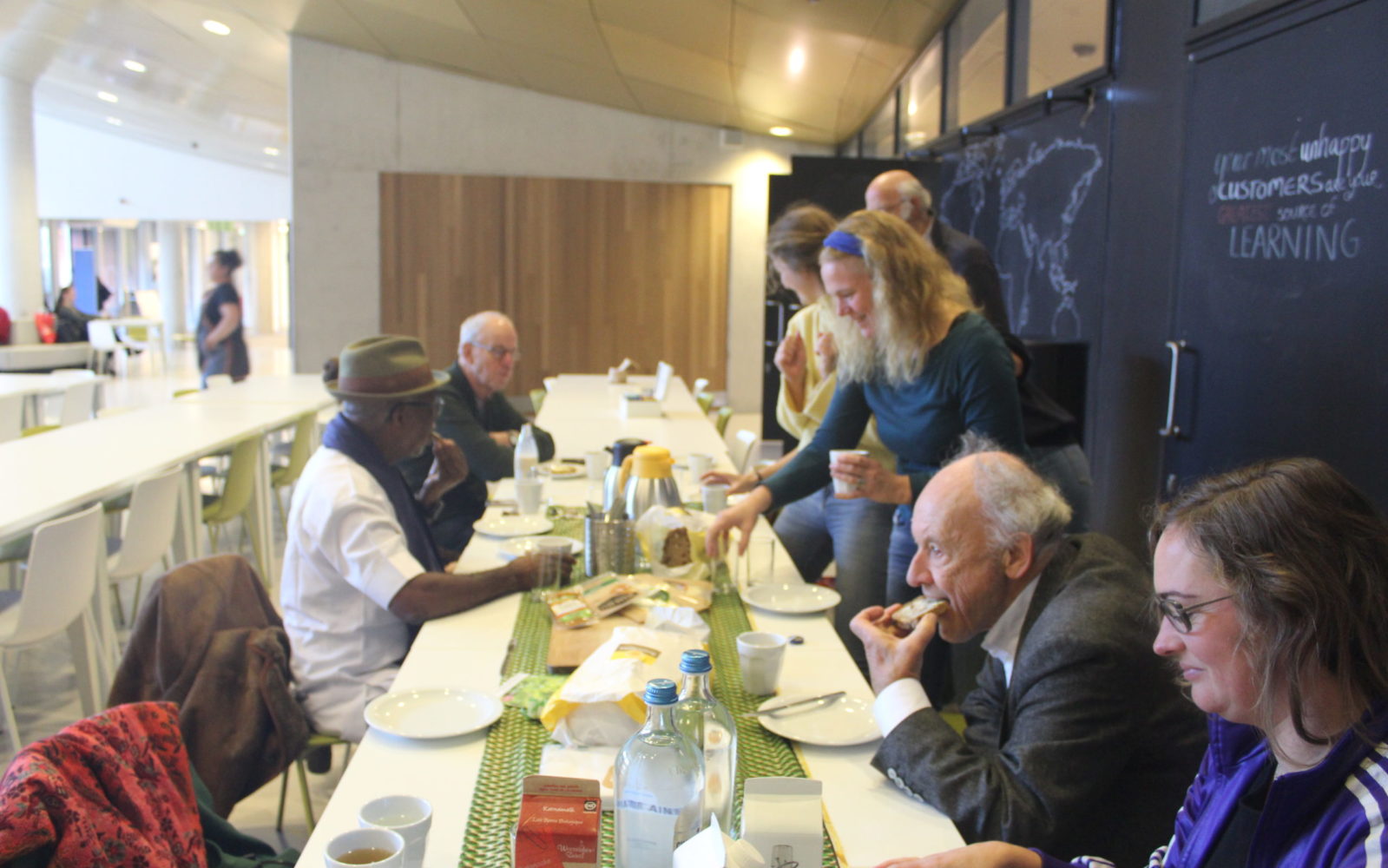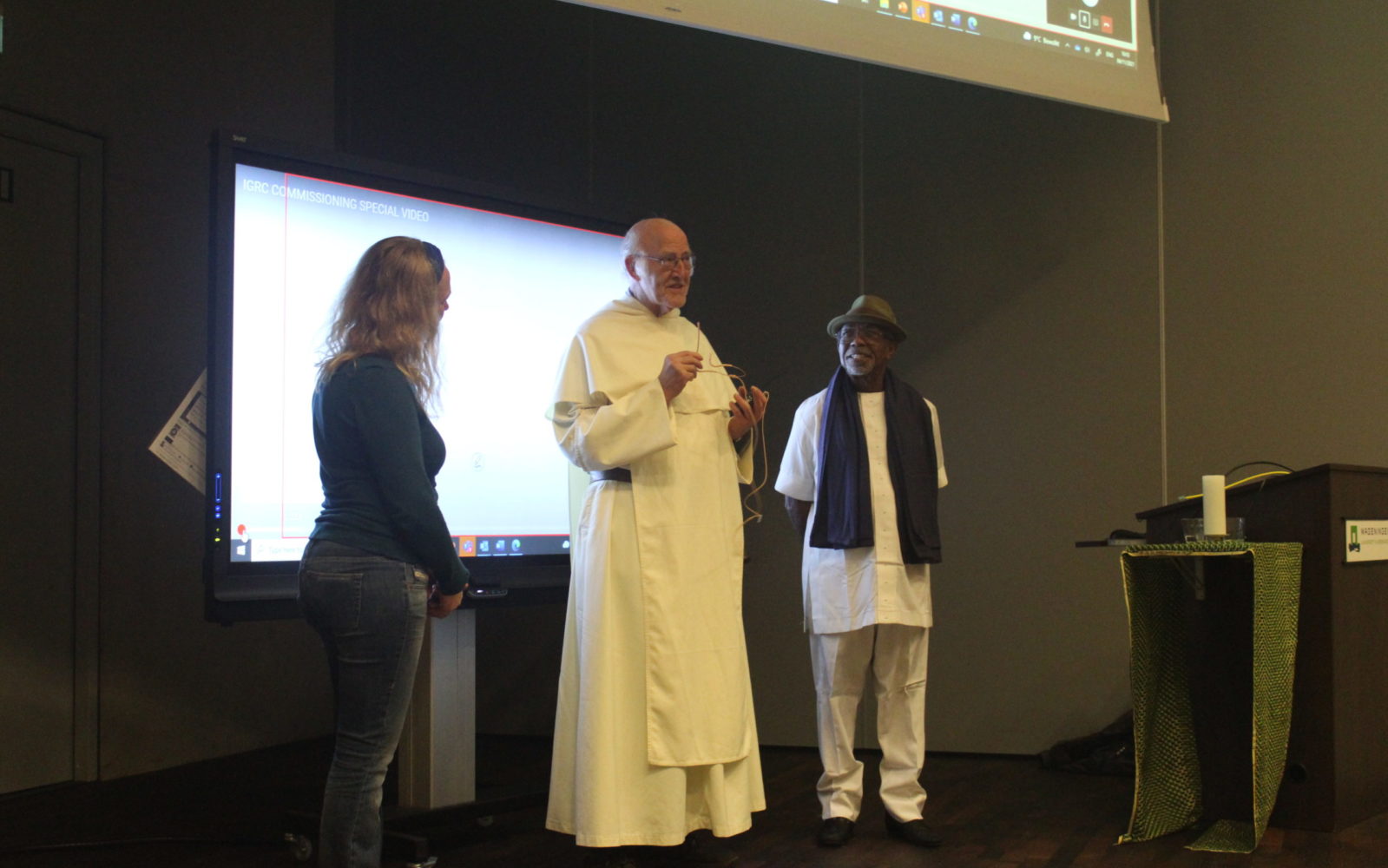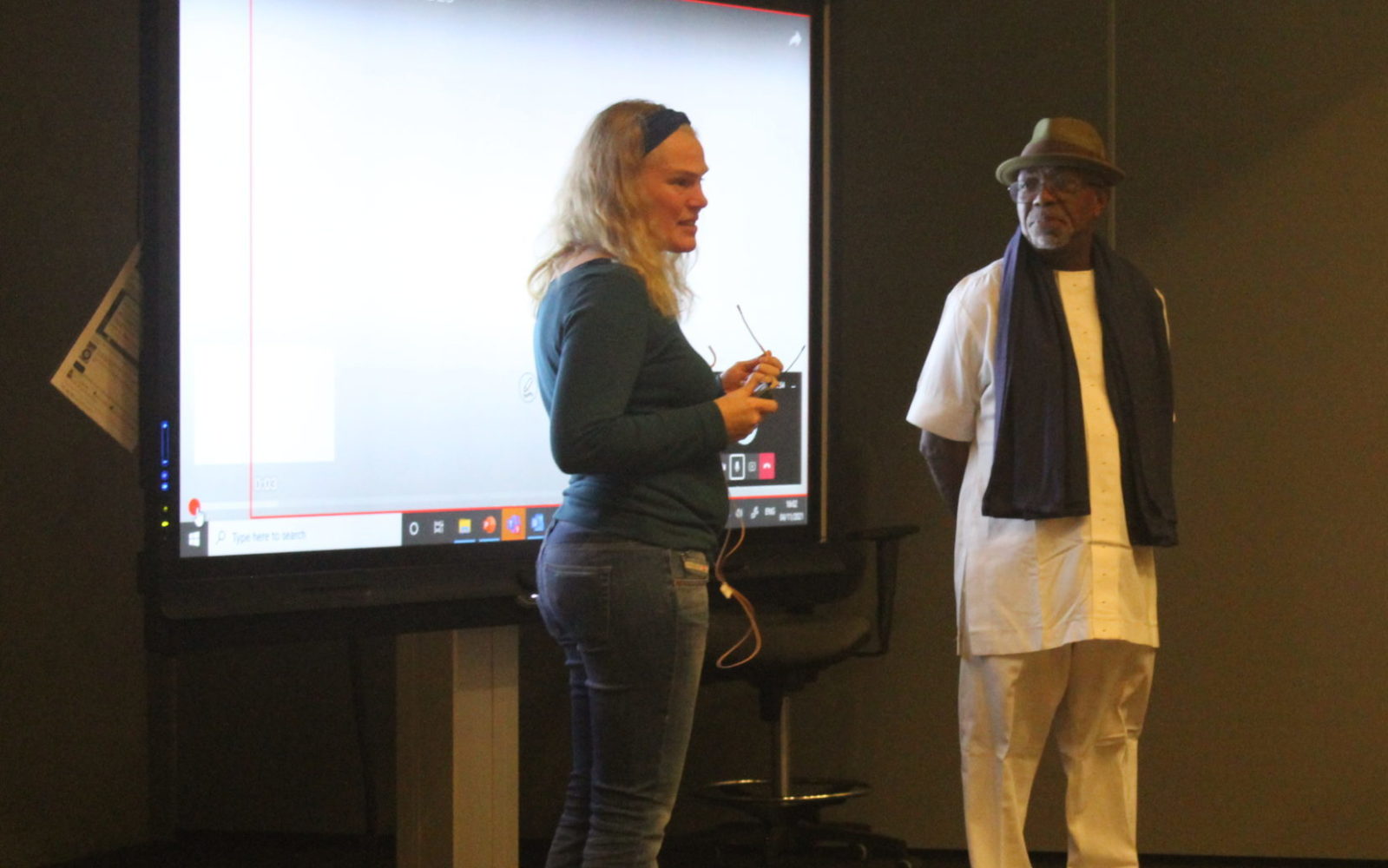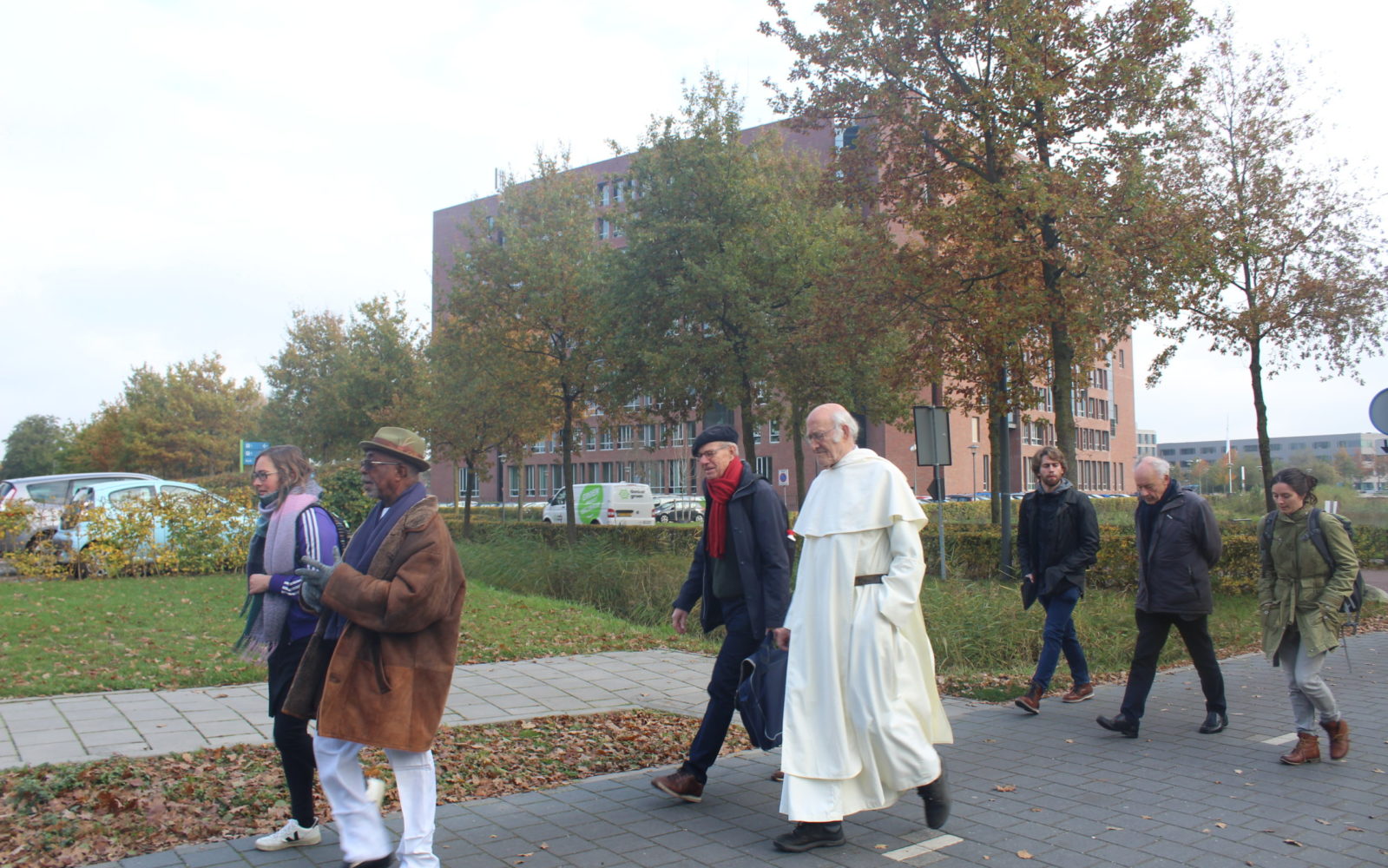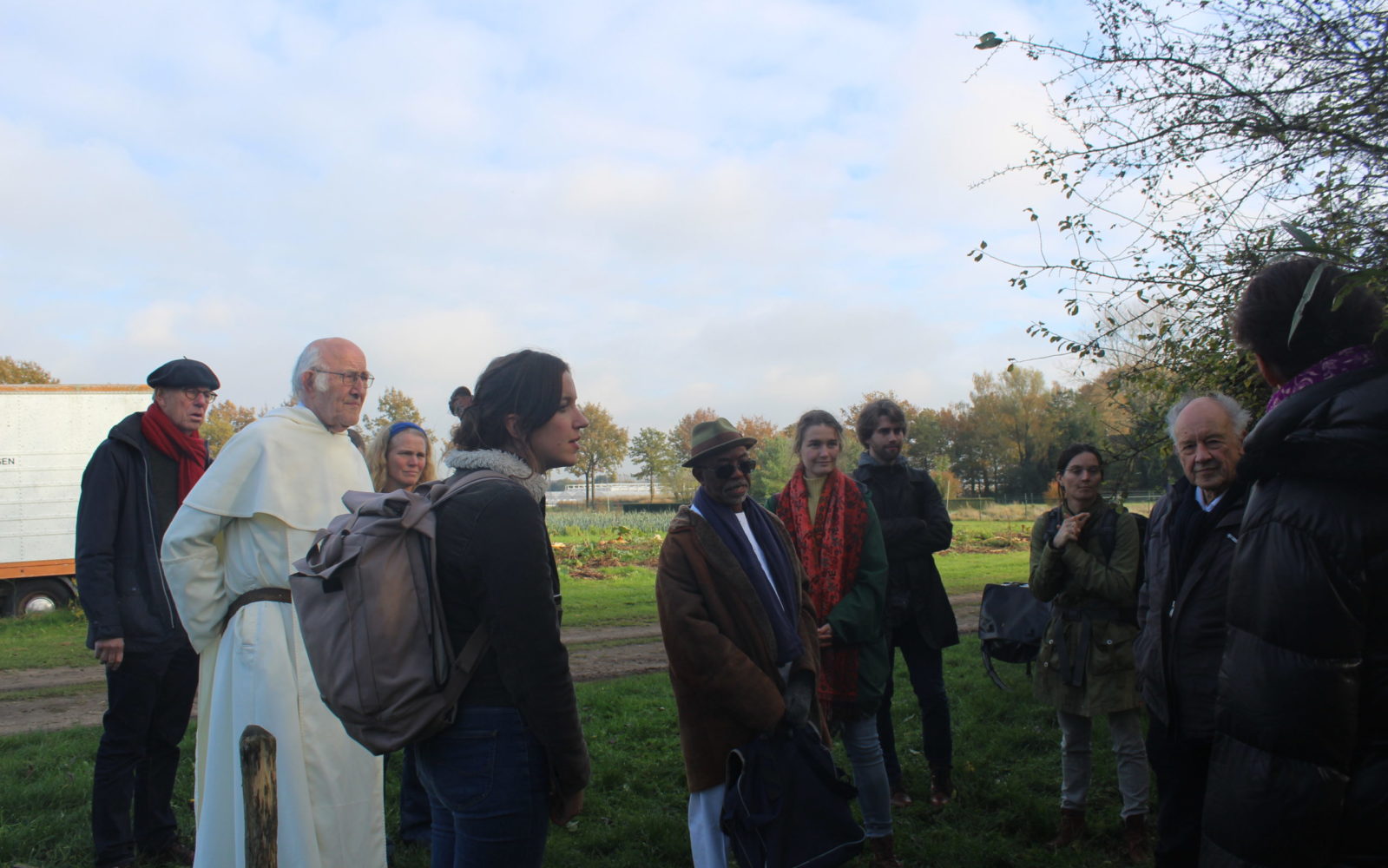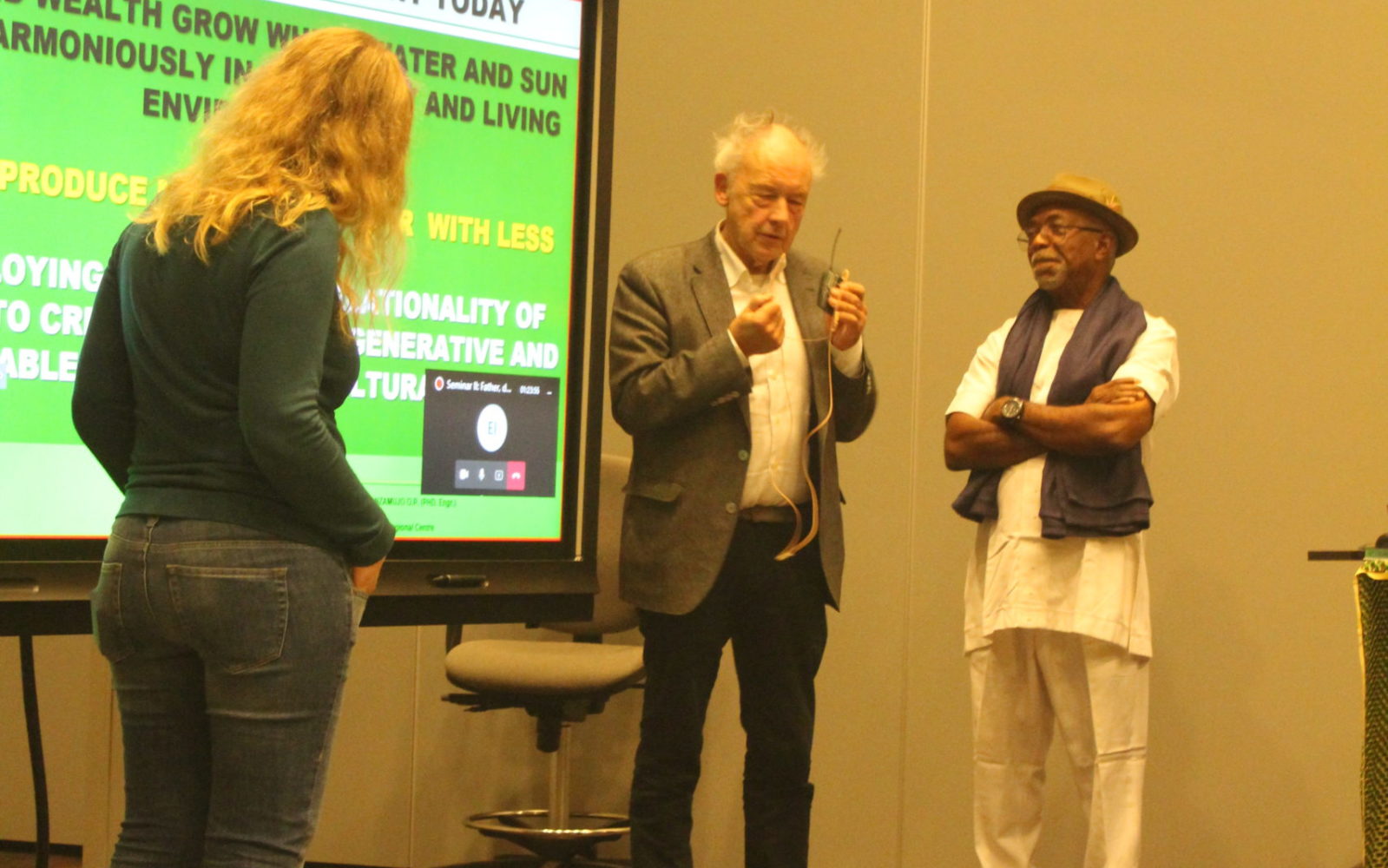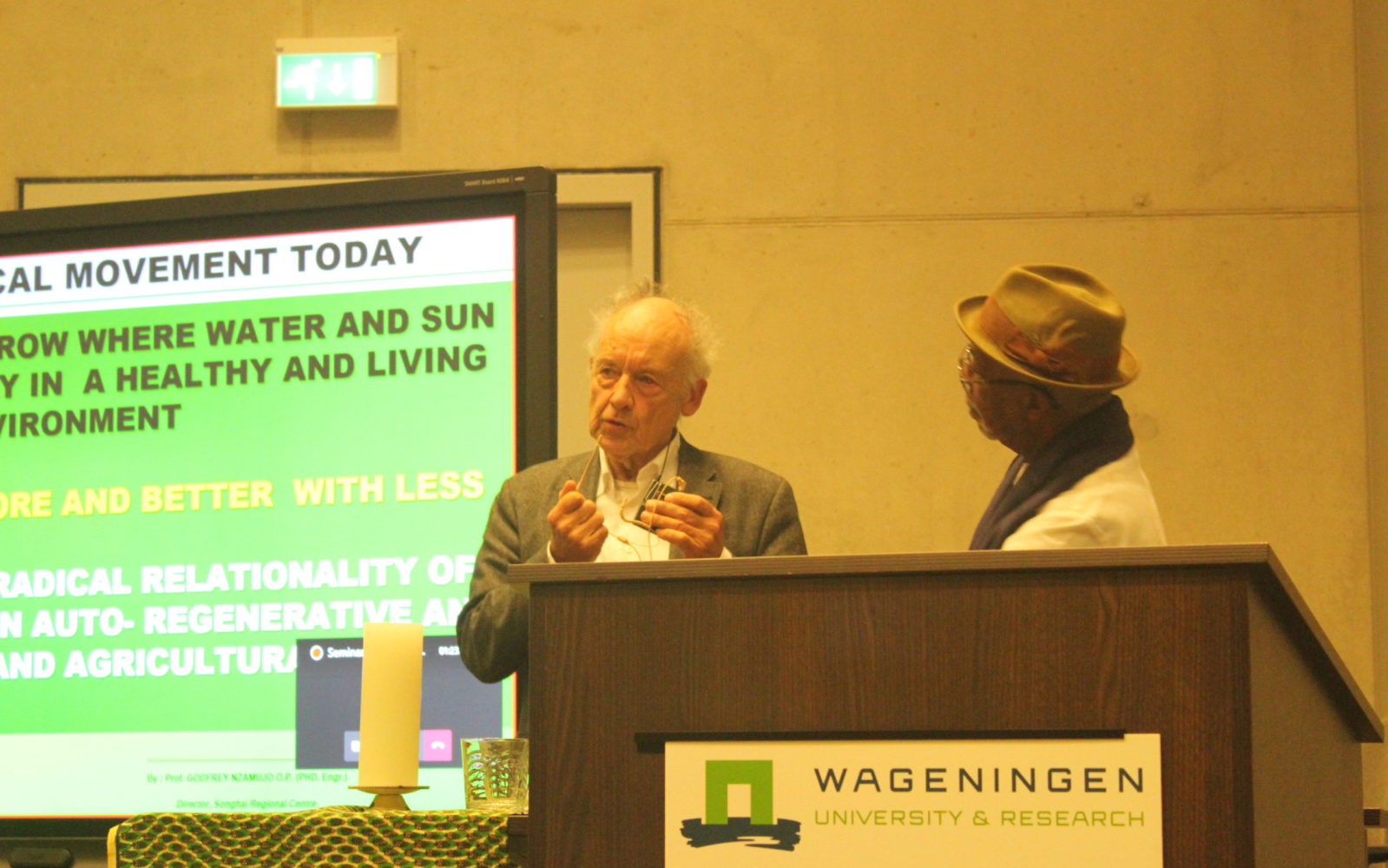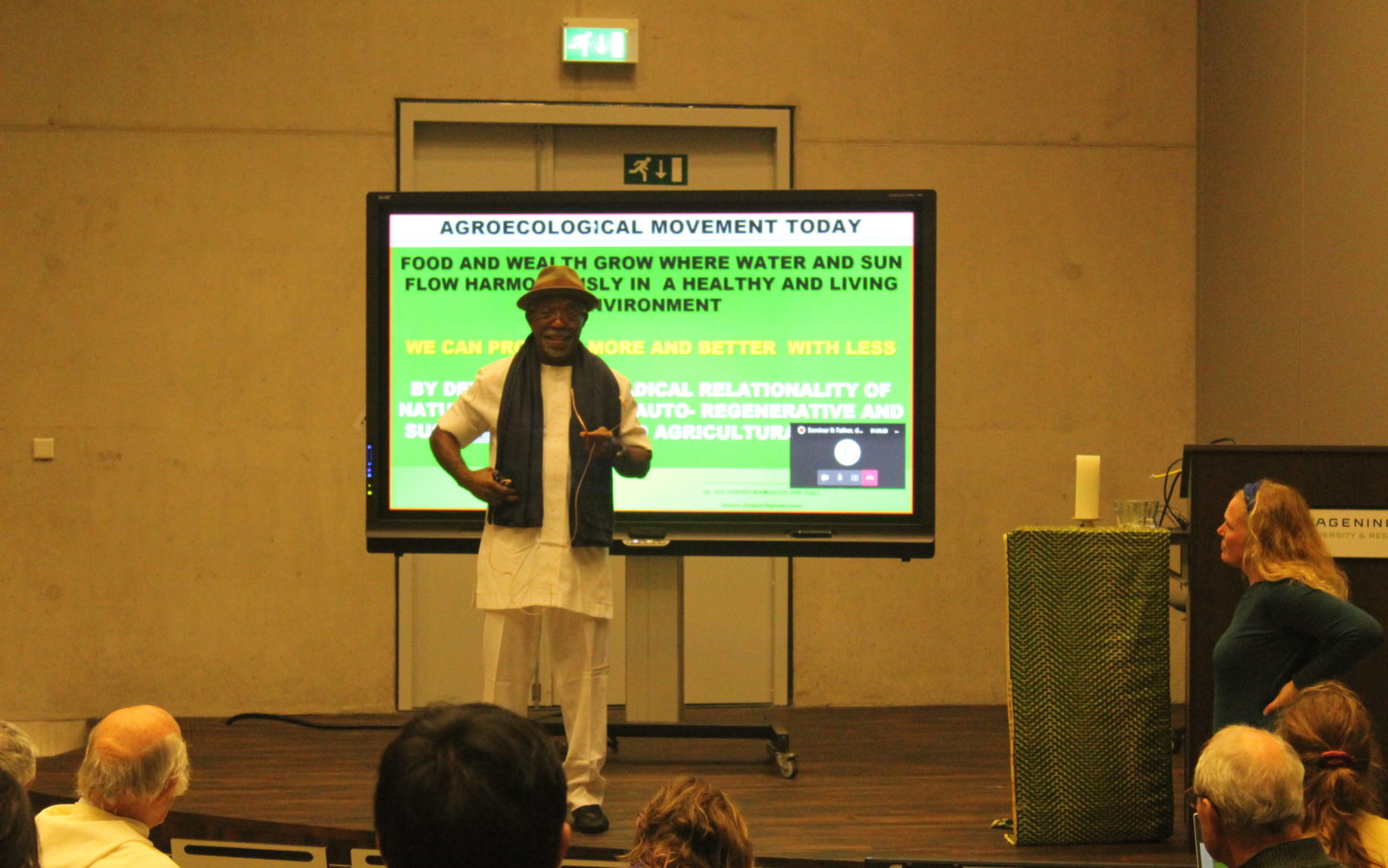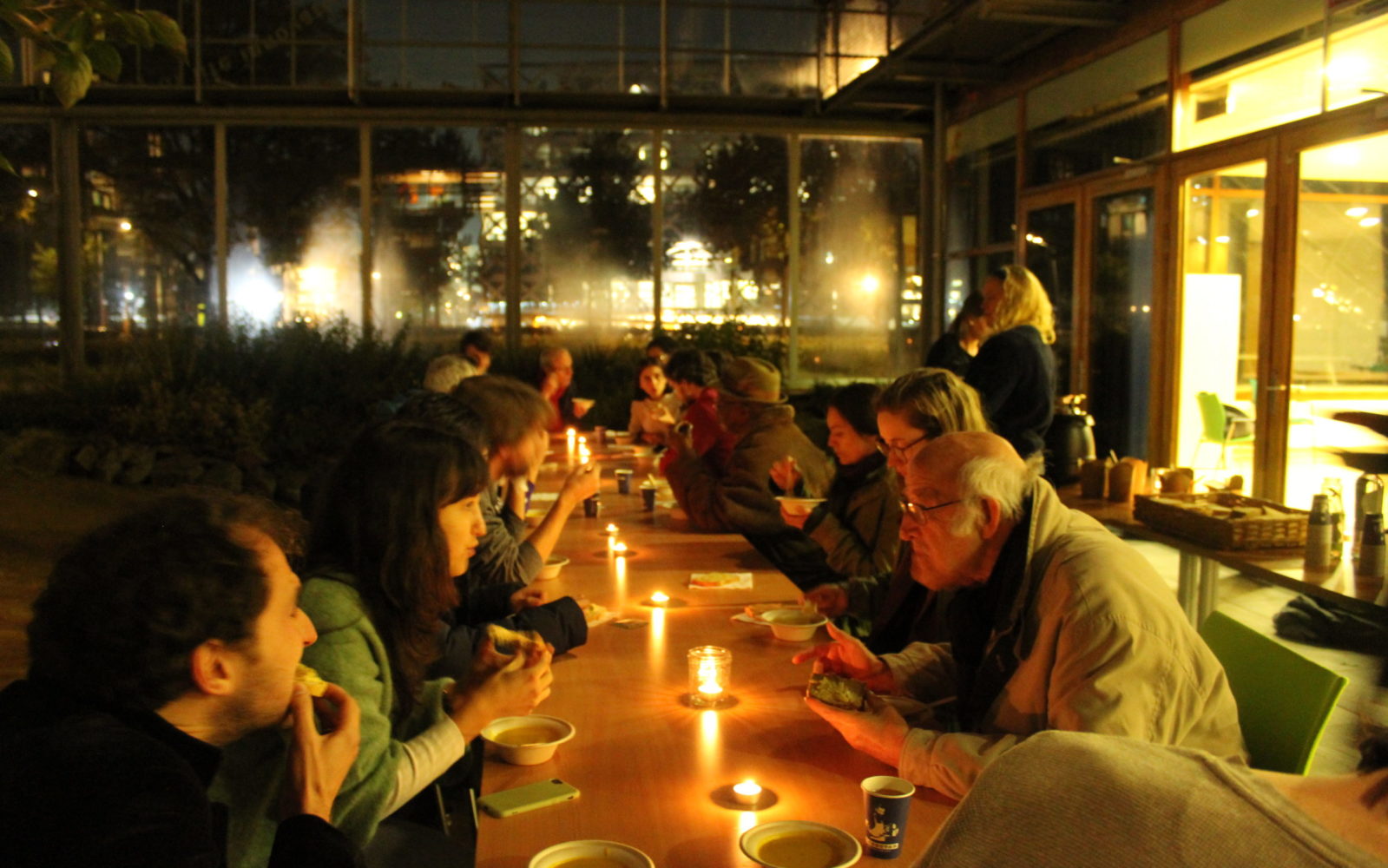[see pictures below]
On November 4th, we were happy to receive dr. Godfrey Nzamujo in Wageningen!
And then it was time for the lunch seminar about Radical Relationality. This concept explains the intrinsic interconnectedness of human, earth and community.
This is the fundamental principle of the Songhai center. There is a mindset of radical connectivity of syntropy.
As father Godfrey explains it, agriculture is fundamentally relational. Conventional agriculture has proven to not be working, as we see in the detriment of nature. It is not efficient, there is a low utilizations of solar energy, 85 percent of phosphorus leaks out and so forth. There is a need for new combinations to be made, for example the combination between peasants and researchers is very important to him. He calls this “barefoot researchers”. In it is a good advice for all the students in the audience to continuously find connections.
In the afternoon, we organized a small walk with the delegation from the Zwolle monastery across the campus, and we visited the Creative Garden where we were greeted by two creative gardeners who showed us around the beautiful garden and told us the story of this community garden where people from all ages come to together on Sundays to grow their own food.
Then we continued our walk to the Hoge Born itself, which a care farm with a farm shop right next to the campus. There, we also learned about the functioning of this farm, and how the social aspects and the farming practices are connected and influence each other. We had tea with the people working on the farm, and had some good conversations.
We returned to the campus for the afternoon seminar, which focused on Zero Waste Farming. Father Godfrey explained the farmingpractices of the Songhai center, as well as the circular loops of production and distribution and how the different centers work together. Education takes a very big place in the Songhai community. There are a lot of trainings available for local citizens, and they are then the ones that become paid employees, that are continuously stimulated to learn and experiment. In the Songhai center, technology is welcomed and used in a mindful way, and a lot of helpful techniques are developed themselves. After the talk, dr. Meino Smit gave a reflection based on the research he did on non-efficiency of energy use of industrial agriculture.
We ended the inspiring day, full of syntrophic connections, with a beautiful candle-lit dinner with food prepared by Vreemde Streken.

